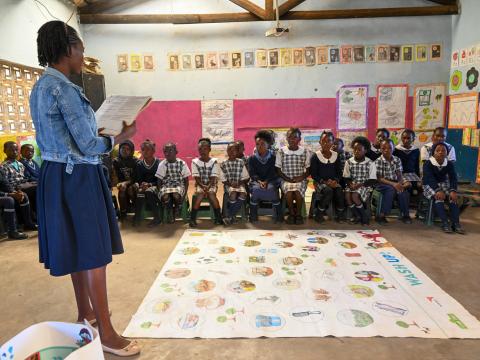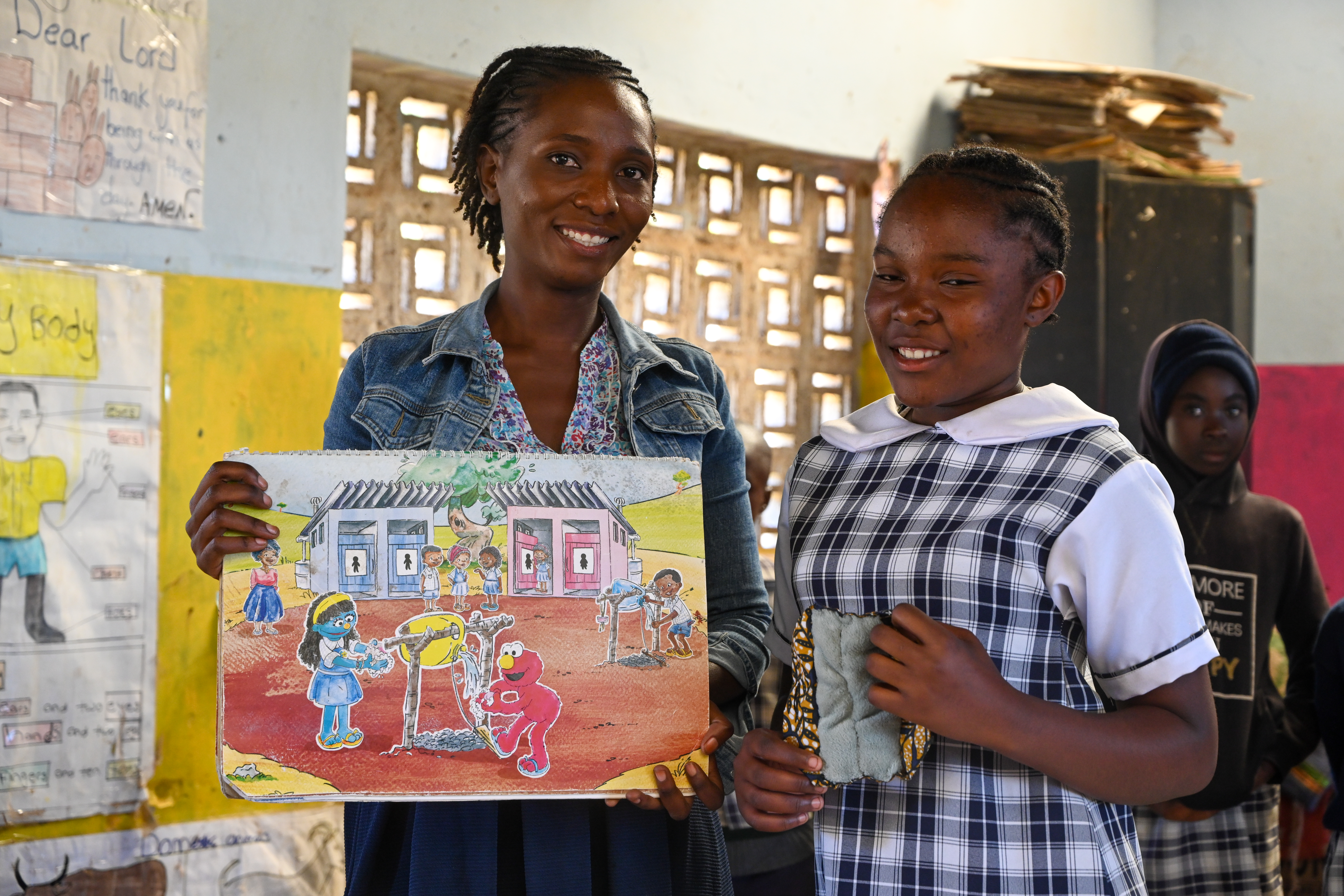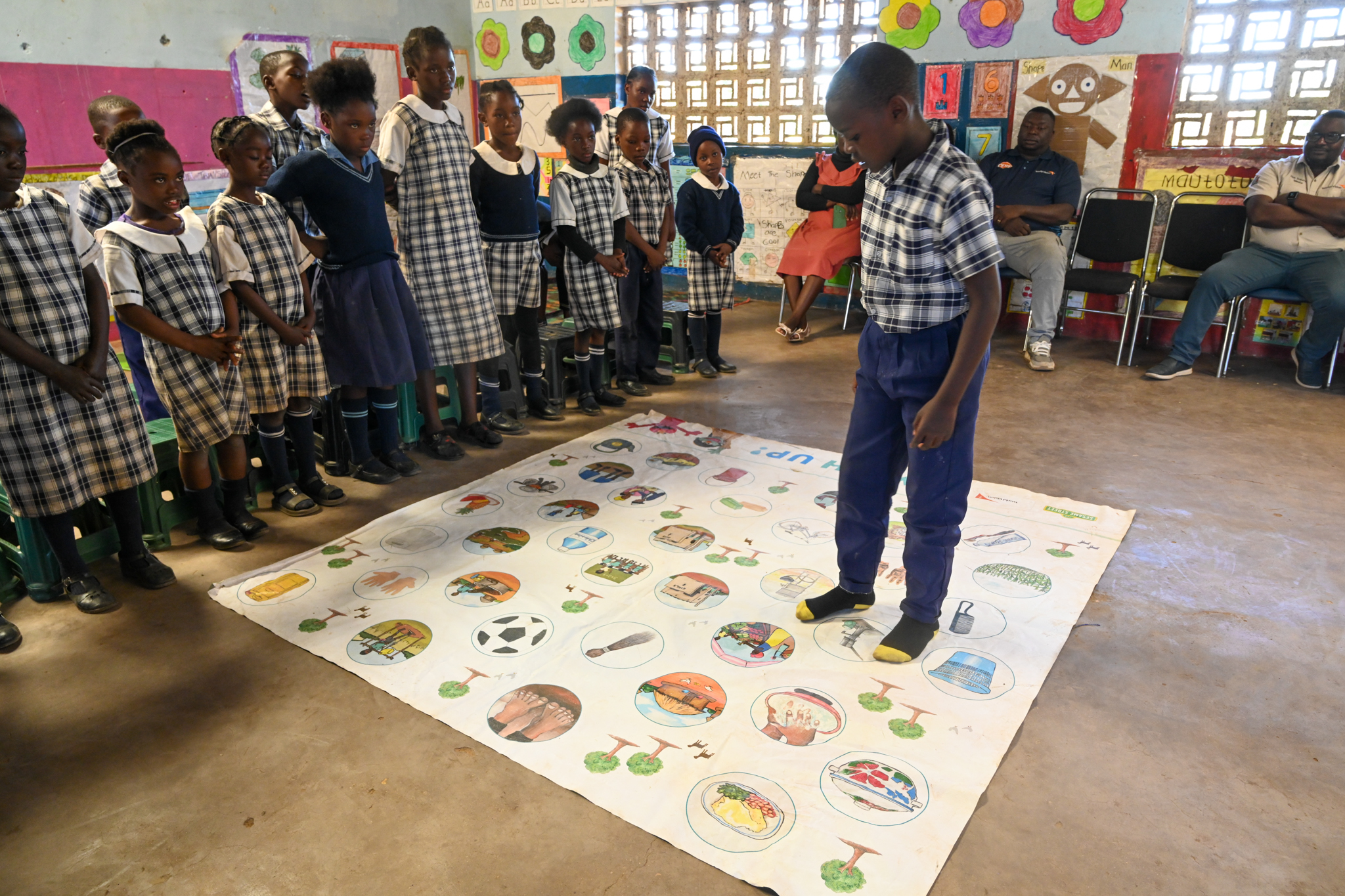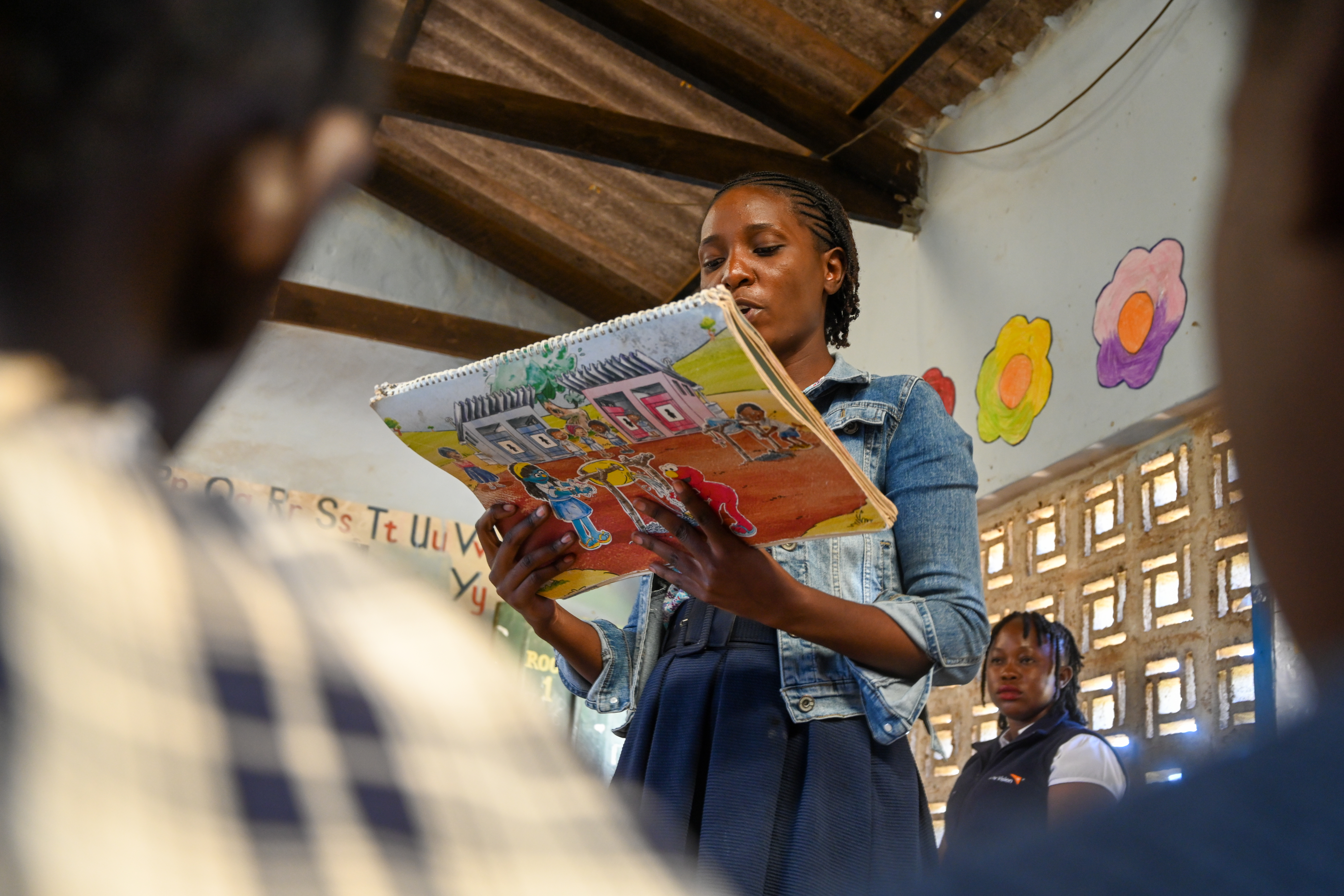Promoting Sanitation and Hygiene at Katoba Primary School Through WASH-UP Club Support

In the village of Katoba, challenges stemming from poor hygiene and sanitation have long affected the lives of pupils at Katoba Primary School. Limited access to clean water and inadequate sanitation facilities have made it difficult for children to stay healthy and attend school regularly. Many students resort to using unsafe water sources, which increases their risk of waterborne diseases like cholera and diarrhoea. The lack of proper toilets and handwashing facilities has also contributed to unsanitary conditions, making it hard for pupils to practice good hygiene habits both in school and at home. These issues have particularly affected girls, who often miss school during their menstrual cycles due to the absence of private, clean facilities and access to sanitary products.

Recognizing these challenges, World Vision Zambia stepped in with a comprehensive approach to improve water, sanitation, and hygiene (WASH) at Katoba Primary. One of their key achievements was the provision of clean, safe water through the construction of boreholes, ensuring that pupils and staff have reliable access to drinking water. In addition, World Vision built a new ablution block — a vital facility equipped with clean toilets and handwashing stations. These infrastructure improvements have significantly enhanced the sanitation conditions at the school, making it safer and more conducive for learning.
The WASH-UP Club, introduced as part of this initiative, uses creative methods such as games and practical demonstrations to promote hygiene and sanitation among pupils. One of the most engaging tools they use is a colorful play mat, which helps children understand the importance of proper handwashing, waste disposal, and maintaining a clean environment. Ms. Chanda Mwila, the WASH-UP Club Coordinator, explains how the play mat works: “We use the mat to demonstrate hygiene practices both in school and at home. For example, we show pupils how to wash their hands thoroughly, how to dispose of waste properly, and how to keep their surroundings clean. The children really enjoy the interactive sessions, and they remember these habits because they learn through play. It’s a fun way to teach serious topics, and it helps them carry these habits into their daily lives.”

In addition to the play mat, the club also uses popular games like Snakes and Ladders to reinforce hygiene messages. “We adapted Snakes and Ladders to include hygiene and sanitation questions and scenarios,” Ms. Mwila explains. “As pupils play, they answer questions about handwashing, safe water use, and waste disposal. This makes learning fun and memorable, and the children are eager to participate.”
Ms. Mwila emphasizes that the club’s activities go beyond just teaching hygiene. “We also focus on empowering girls, especially during their menstrual cycles. Many girls miss school because they lack access to re-usable pads or don’t know how to make them. Our club teaches adolescent girls how to make their own reusable pads using local materials. This way, they can stay in school, maintain their dignity, and continue learning without interruption,” she says.
One inspiring pupil, Evelyn, a Grade 7 student, shares her experience: “Before I joined the WASH-UP Club, I didn’t know how to take care of myself during my period. I used to miss school because I was worried about leaks or feeling uncomfortable. But now, I know how to make my own reusable pads, and I feel confident. I no longer miss school and can focus on my studies,” Evelyn says proudly.

The impact of the programme extends beyond personal hygiene. Teachers have observed a positive change in the pupils’ behaviour and confidence. Pupils are more aware of hygiene practices, and the school environment has become cleaner. Parents also notice the difference, with many saying their children are now more responsible for their health and cleanliness at home.